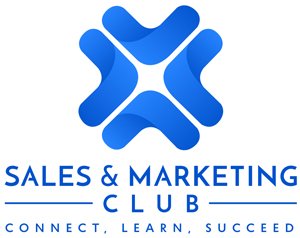Sales are the lifeblood of any business. Without a strong sales strategy, even the best products and services can go unnoticed, and businesses can struggle to survive. In a competitive marketplace, it’s crucial to have a deep understanding of the fundamentals of effective sales techniques. From building relationships with customers to closing deals, successful salespeople employ a range of skills and strategies to achieve their goals. In this blog, we’ll delve into the essential principles of effective sales techniques that can help boost your sales performance and take your business to new heights.
- Understand Your Customer
Effective sales begin with a profound understanding of your customers. You must know their needs, desires, pain points, and buying behaviors. Take the time to create detailed customer personas, and don’t hesitate to talk to your existing customers for insights.
When you understand your customers, you can tailor your approach to meet their specific needs. Instead of pushing a generic sales pitch, you can offer solutions that address their unique challenges and add value to their lives. A customer-centric approach builds trust and credibility, two critical components of effective sales.
- Active Listening
One of the most overlooked yet fundamental skills in sales is active listening. Effective salespeople do more listening than talking. When you actively listen to your customers, you can gain a deeper understanding of their needs and pain points. Ask open-ended questions to encourage your customers to share their thoughts and concerns.
By actively listening, you also signal that you value your customers’ opinions and are genuinely interested in helping them. This builds rapport and trust, which are essential for successful sales relationships.
- Building Relationships
Sales is not just about transactions; it’s about building lasting relationships. Customers are more likely to buy from people they trust and have a positive relationship with. Invest time and effort in nurturing these relationships, even if it doesn’t lead to an immediate sale.
Send personalized follow-up emails, check in with your customers to see how they’re doing, and remember important details about their lives and businesses. Building strong relationships can result in not only repeat business but also valuable referrals.
- Product Knowledge
To effectively sell a product or service, you need to have a deep understanding of what you’re offering. Your customers will have questions, and they expect you to have the answers. Study your product or service inside and out so that you can communicate its features and benefits clearly and persuasively.
When you can explain how your product or service solves specific problems or enhances your customers’ lives, you become a trusted advisor rather than just a salesperson.
- Set Clear Objectives
Every sales interaction should have a clear objective. Do you want to schedule a follow-up call, make a sale, or simply gather more information about the customer’s needs? Setting clear objectives for each interaction keeps you focused and helps move the sales process forward.
- Effective Communication
Effective communication is a cornerstone of sales success. It’s not just about what you say but how you say it. Pay attention to your tone, body language, and non-verbal cues. Be clear, concise, and avoid jargon or technical language that your customers might not understand.
Tailor your communication style to match that of your customer. Some people prefer a formal, detailed approach, while others respond better to a casual, friendly tone.
- Overcome Objections
Customers will have objections and concerns. Effective salespeople don’t shy away from objections; they see them as opportunities to provide more information and address concerns. Be prepared to handle objections confidently and constructively.
Listen carefully to objections, acknowledge the customer’s concerns, and then respond with well-reasoned solutions. Sometimes, objections can reveal hidden needs that you can address, ultimately leading to a successful sale.
- Use Social Proof
In today’s world of online reviews and social media, social proof is a powerful sales tool. Share testimonials, case studies, and success stories from satisfied customers to build trust and credibility. People are more likely to buy when they see that others have had positive experiences with your product or service.
- Create a Sense of Urgency
Creating a sense of urgency can motivate potential customers to make a decision. Limited-time offers, exclusive deals, or product scarcity can encourage people to act sooner rather than later. However, be honest and transparent when using this technique to avoid damaging your reputation.
- Follow-Up
Many sales are lost because of a lack of follow-up. Effective salespeople don’t just make one attempt and give up. They have a structured follow-up process in place to stay top-of-mind with potential customers and nurture leads over time.
A well-executed follow-up strategy can turn a lukewarm lead into a hot prospect and, eventually, a loyal customer.
- Close the Sale
Closing the sale is where the rubber meets the road in sales. There are various closing techniques, but the most effective approach is often to simply ask for the sale. For example, you can say, “Would you like to go ahead with this product today?” or “Are you ready to make a decision?”
Confidence is key during the closing phase. If you’ve built a strong rapport, addressed objections, and effectively communicated the benefits of your product or service, the close should be a natural progression of the conversation.
- Continuous Learning and Improvement
The world of sales is constantly evolving, with new technologies, trends, and customer behaviors emerging regularly. To stay competitive, effective salespeople commit to continuous learning and improvement. They attend training sessions, read books, and follow industry blogs to stay informed about the latest developments in their field.
Furthermore, they seek feedback from their peers and supervisors to identify areas for improvement. Constructive feedback can help fine-tune your sales techniques and drive better results.
In conclusion, effective sales techniques are not about being pushy or manipulative. Instead, they are built on a foundation of understanding, active listening, relationship-building, and communication. By mastering these fundamentals, you can become a trusted advisor to your customers, build lasting relationships, and achieve consistent sales success. Remember, sales is not just about selling a product or service; it’s about helping customers solve problems and improve their lives.


















